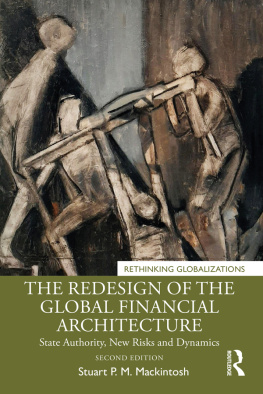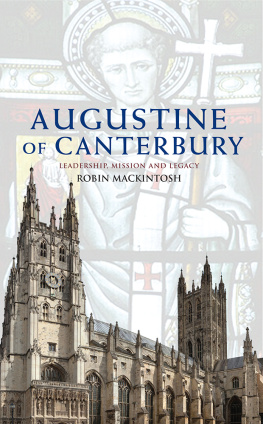The Life and Mysterious Death of IAN MACKINTOSH
Also by Robert G. Folsom
The Money Trail: How Elmer Irey and His T-Men Brought Down Americas Criminal Elite
The Life and Mysterious Death of IAN MACKINTOSH
THE INSIDE STORY OF THE SANDBAGGERS AND TELEVISIONS TOP SPY
ROBERT G. FOLSOM

Copyright 2012 Potomac Books, Inc.
Published in the United States by Potomac Books, Inc. All rights reserved. No part of this book may be reproduced in any manner whatsoever without written permission from the publisher, except in the case of brief quotations embodied in critical articles and reviews.
Excerpts from The Sandbaggers, copyright ITV Studios limited. Used by permission of ITV Studios limited.
Library of Congress Cataloging-in-Publication Data
Folsom, Robert G., 1930
The life and mysterious death of Ian Mackintosh : the inside story of The sandbaggers and televisions top spy / Robert G. Folsom.1st ed.
p. cm.
Includes bibliographical references and index.
ISBN 978-1-61234-188-0 (hardcover : alk. paper)
ISBN 978-1-61234-189-7 (electronic)
1. Sandbaggers (Television program) 2. Mackintosh, Ian--Criticism and interpretation. 3. Spy television programsGreat BritainHistory and criticism. I. Title.
PN1992.77.S27258F55 2012
822.914dc23
2012012983
Printed in the United States of America on acid-free paper that meets the American National Standards Institute Z39-48 Standard.
Potomac Books
22841 Quicksilver Drive
Dulles, Virginia 20166
First Edition
10 9 8 7 6 5 4 3 2 1
Contents
Abbreviations
C | Chief of the British Secret Intelligence Service (MI6) |
CIA | Central Intelligence Agency |
DCHQ | Government Communications Headquarters (Britain) |
DSI | Directorate of Security Intelligence |
DSO | Defence Security Office (MI5) |
FBI | Federal Bureau of Investigation |
FSB | Federal Security Service, 1995 to present (Russia) |
GRU | Main Intelligence Directorate (Russia) |
HMG | Her Majestys Government |
KGB | Committee for State Security (Soviet Union) |
MBE | Member of the British Empire |
MI5 | Security Service (Britain) |
MI6 | Secret Intelligence Service (also SIS) (Britain) |
MVD | Ministry of Internal Affairs (Soviet Union) |
NATO | North Atlantic Treaty Organization |
NID | Naval Intelligence Division (Britain) |
NTSB | National Transportation Safety Board |
ONI | Office of Naval Intelligence (America) |
OSS | Office of Strategic Services (America) |
PIDE | International and State Defence Police (Portugal) |
RAF | Royal Air Force (Britain) |
SAS | Special Air Service (Britain) |
SB | Special Branch (Britain) |
SDECE | External Documentation and Counter-Espionage Service (France) |
TASS | Telegraph Agency of the Soviet Union |
Foreword
From the moment the first episode of The Sandbaggers was broadcast, the intelligence community knew that it was the only television series that had more than a veneer of verisimilitude. The office politics of the organization, the characters, and the plots all reflected inside knowledge of the British Secret Intelligence Service, an agency that at the time was unavowed. Each script betrayed compelling evidence of an inside job, a knowledge power-brokering within Whitehalls most secret corridors. This included the staffs habitual omission of the definite article when referring to SIS, as well as the complex relationships that linked the austere, anonymous concrete headquarters in the Westminster Bridge Road to the aloof mandarins of the Foreign and Commonwealth office.
At the time there was a long-standing convention that Britains clandestine service should not be publicly identified, and this tradition was perpetuated by successive governments of all hues that found it expedient to avoid parliamentary questions concerning covert operations conducted by SIS and its domestic counterpart, MI5. Indeed, the names of the heads of both organizations were not disclosed officially until 1992, when Stella Rimington was revealed as director general of the Security Service and Sir Colin McColl named as C, SISs chief.
The orthodoxy had always been that anyone with firsthand experience of secret operations should remain silent, and the code of omert had been enforced by the courts when Compton Mackenzie was prosecuted under the Official Secrets Act in October 1932 following an attempt to publish his memoirs, which described his work for SIS in Greece during World War I. Thereafter, the many writers who had served in the sub-rosa departments, a group that escalated in number dramatically during World War II, complied with the ban.
The authors who acquired inside knowledge were an impressive collection that included Graham Greene, Malcolm Muggeridge, Maxwell Knight, and Dennis Wheatley. During the postwar decades a veritable cottage industry developed of intelligence professionals writing spy thrillers, often adopting pen names. Among them were John Bingham, Kenneth Benton, William Younger (who wrote as William Mole), and David Cornwall, aka John le Carr. The latter, of course, evinced an atmosphere of Cold War treachery in a bleak and darkly sinister tableau of double agents, deception, and betrayal. Later came Callan, the television show whose main character, the reluctant assassin played by Edward Woodward, worked for an amorphous branch of British intelligence known only as the Section.
The world of le Carr, typified by The Spy Who Came in from the Cold, was widely thought to represent an accurate portrayal of the undercover East-West conflict. But insiders, including Bingham, were offended by le Carrs cavalier attitude to the ethics of the case officer and professed that his version was far from lifelike. Le Carr was followed by Len Deighton and others who perpetuated some of the espionage myths that had been nurtured by previous writers, but they were emphatically reliant on their imaginations and not on personal experience.
And then along came The Sandbaggers. Ian MacKintoshs scripts were as uncomfortably close to life as seemed prudent, although there was some license in respect to the British governments willingness to sanction assassination. In reality, an official sanction to eliminate an adversary is an exceptionally rare event, having been granted in Britain only twice in the half century following the end of hostilities in Germany. On both occasions, Prime Minister Anthony Eden had requested a hit, but both the Cypriot terrorist leader Col. George Grivas and President Gamal Abdel Nasser of Egypt escaped unscathed. Neil Burnside, who ran the covert organization known as the Sandbaggers, had a rather impressive record of success, but surely he was an almost entirely fictional character. Or was he?
Next page













